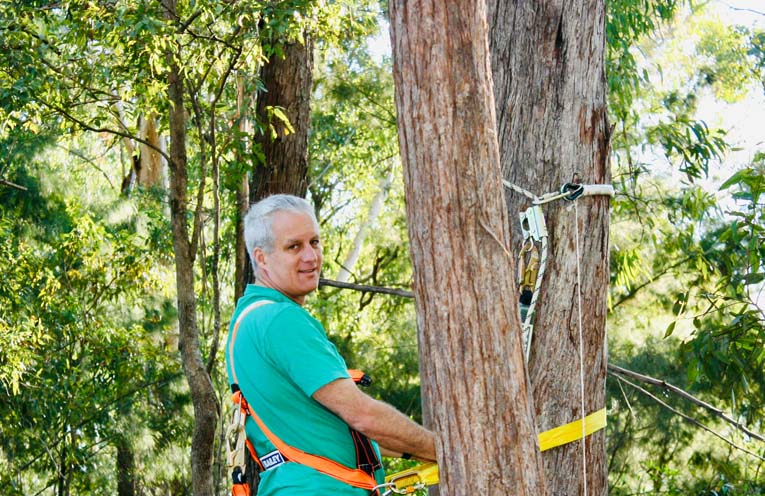
ECO-ANXIETY is a term coined to explain the fear that with the direction the planet is going in, everything is doomed and there’s nothing we can do about it – and people on the Coffs Coast are feeling it.
Bellingen-based OzGREEN’s CEO Anton Juodvalkis told News Of The Area, “People are beginning to experience not just eco-anxiety, but also eco-trauma.
“Uncertainty, unpredictability, and uncontrollability appear to contribute to eco-anxiety.
“It’s therefore essential that we have programs in place to transition people from despair and overwhelm to positions where they feel inspired and motivated.
“When people feel empowered and supported, they are able to take positive action to address their environmental fears and concerns.”
OzGREEN is working closely with local psychologist Lisa Brown, who has a strong interest in eco-anxiety.
A recent collaboration can be seen at www.ozgreen.org/livingwell_valla.
Scientists and psychologists say it’s a natural response to the overwhelming amount of evidence we have about the negative impacts of human activity on the earth and its ecosystems.
NOTA spoke with Southern Cross University (SCU) lecturer Dr Eric Brymer, whose research for over twenty years has focused on the human-environment relationship and the impact of this relationship on performance, health and wellbeing.
He is also leading a research collaborative investigating the impact of changing environmental conditions on mental health as part of the newly formed Manna Institute.
Research shows there are direct and indirect effects on a person’s mental health from what happens in the environment; whether it be from extreme weather events or the deliberate cutting down of a tree or destruction of a rainforest.
“There’s eco-grief and eco-anxiety and both are really impactful on people’s mental health,” Dr Brymer told NOTA.
“Mental health interventions today are designed to help the individual and to make the individual more resilient and to help them think differently.”
But those interventions don’t always work when it comes to the environment.
“We need a better understanding of the effect the environment has on human mental health.
“We need to be looking at designing environments that are conducive to human experience and support the human experience,” he said.
“Things become worse when the organisations who should be supporting our mental health as a society, such as the government and government bodies, are actually creating more of a problem.
“The organisations which are taking the trees down and destroying biodiversity don’t take into consideration what it’s doing to individuals’ mental health.
“People are coming from the place of ‘I love this area, this is where I grew up, and now you’re destroying it’.”
Dr Brymer said the organisations are completely missing the point and passing it back to the individual to become more resilient.
“People aren’t stupid, they know organisations are green washing, saying they are doing one thing with their left hand and getting us to focus on that, while their right hand does something completely opposing that.”
Dr Brymer goes on to say that the way we understand quality society at the moment is enormously flawed.
“We’re doing well as a country if our economy is doing well,” he said.
However, there are places in the world where they are starting to do things differently, such as Wales, Bhutan and New Zealand.
“In Wales for example there are policies in place that whatever happens has to be for the benefit/wellbeing of future generations’ society – ie the ‘Well-being of Future Generations Act (Wales) 2015’.
“So when a road is going into planning, they have to look at what its impact is on future generations.
“If they find that future generations are going to be worse off because of that road construction then that road doesn’t happen, they have to develop another plan.
“What politicians miss is we are not economic animals, we are about living in harmony.
“It’s about realising we are the natural world and whatever (destruction) we do, we are doing it to ourselves.”
Society has started to make fun of young people who are voicing their eco grief.
“Young people are one of the groups who are seriously suffering eco-anxiety and if we don’t start listening to them, we’re going to create a world that they are fearing.”
A challenge for protesters is that they are often not welcome to speak out and get shut down at presentations.
“Activists for preserving and protecting nature are treated as terrorists, but maybe we should be listening to them more,” said Dr Brymer.
“If the government and organisations took the environment seriously, they would see a lot of evidence of positive impacts, such as the wellbeing effects of being around trees and in the natural world.
“They wouldn’t want to be knocking them down,” he said.
The Doctors for the Environment group provides more information, for details visit www.facebook.com/DocsEnvAus/.
By Andrea FERRARI